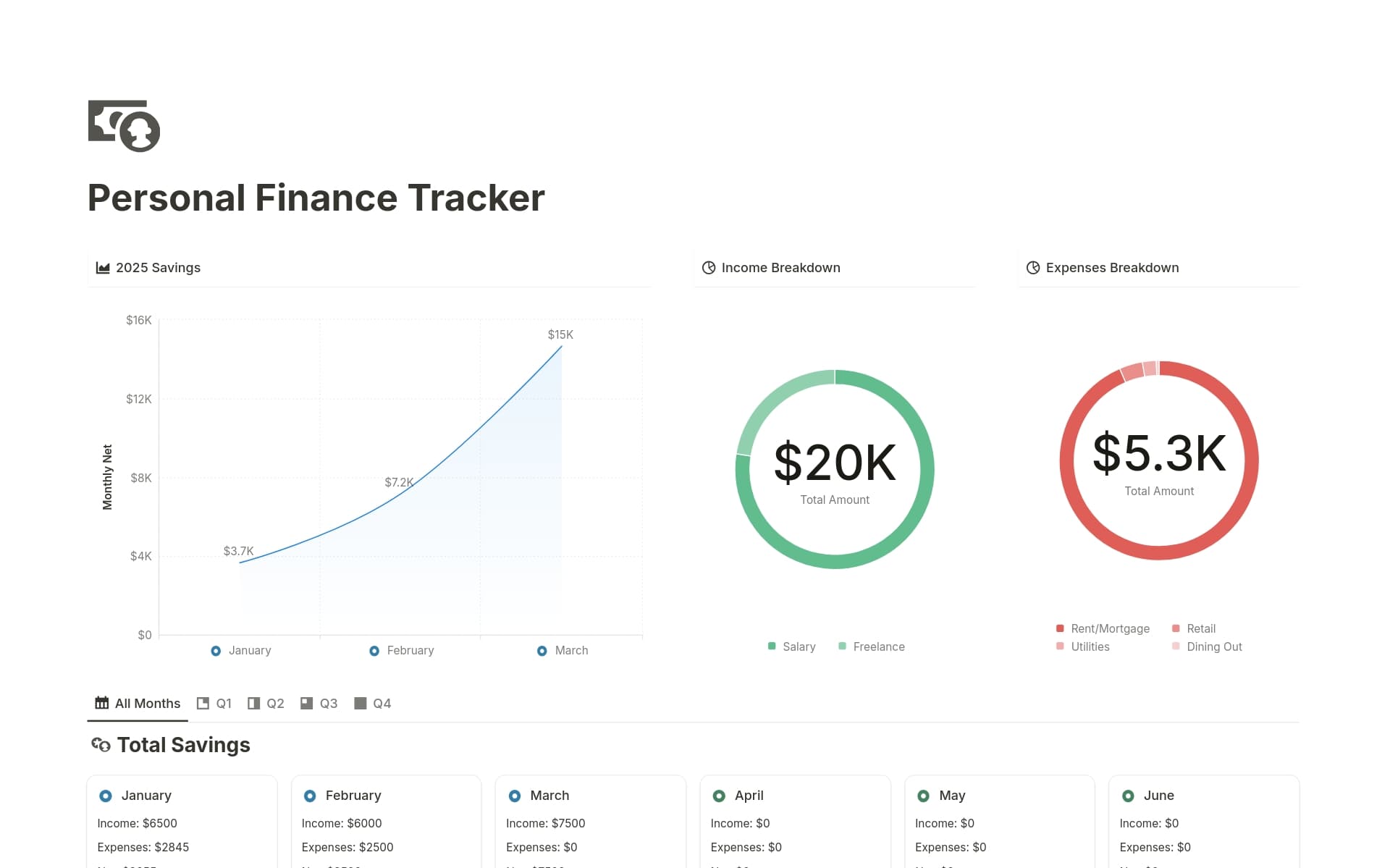Surveys are essential tools for gathering insights, understanding customer preferences, and making informed decisions. They can help you track trends, measure satisfaction, and identify areas for improvement. A Survey Notion template streamlines the process of creating surveys, ensuring that you can focus on the questions that matter most without worrying about the layout or design.
Before you dive into crafting your own survey, take a look at these Survey Notion templates to simplify the process and get you started on the right foot.
What Should Survey Templates Include?
Choosing the right survey template in Notion can streamline your data collection process and enhance the quality of insights you gather. Here are key components to look for:
Clear Objectives: Ensure the template has a well-defined purpose, helping you to gather targeted and relevant data efficiently.
Logical Structure: A good template should have a coherent flow that guides respondents naturally from one question to the next, minimizing confusion and dropout rates.
Scalable Questions: Look for templates that offer various types of questions (multiple choice, rating scales, open-ended) that can be easily modified to suit different survey needs.
Visual Appeal: An aesthetically pleasing design can increase engagement, making it more likely that respondents will complete the survey.
Ultimately, the best survey template not only fits the scope of your project but also makes it easy for respondents to provide meaningful feedback.
What Should Survey Templates Avoid?
Choosing the right survey template in Notion can streamline your data collection process and enhance the quality of insights you gather. However, certain elements can detract from the effectiveness of a survey. Here are three key components to steer clear of:
Overly Complex Questions: Avoid templates that include questions with complex wording or require technical knowledge. Simplicity ensures that respondents fully understand the questions, leading to more accurate responses.
Excessive Length: Long surveys can lead to respondent fatigue, which might result in incomplete responses or abandonment. Opt for templates that encourage concise and focused surveys.
Limited Response Options: Templates that do not offer a range of response options can restrict the depth of insights you collect. Ensure the template allows for various types of responses, such as multiple choice, ratings, and open-ended answers.
Selecting a survey template that avoids these pitfalls will help you achieve more reliable and actionable results, making your data collection efforts more effective and insightful.









